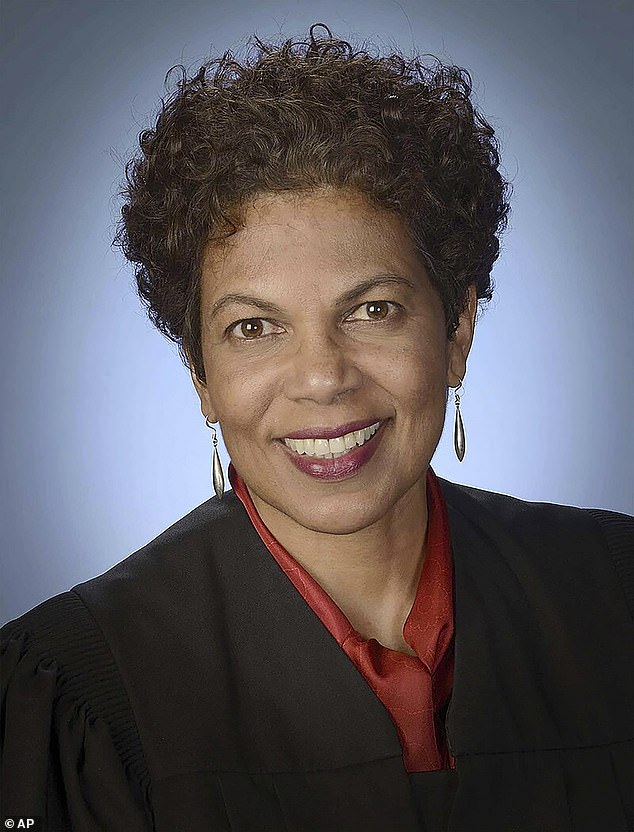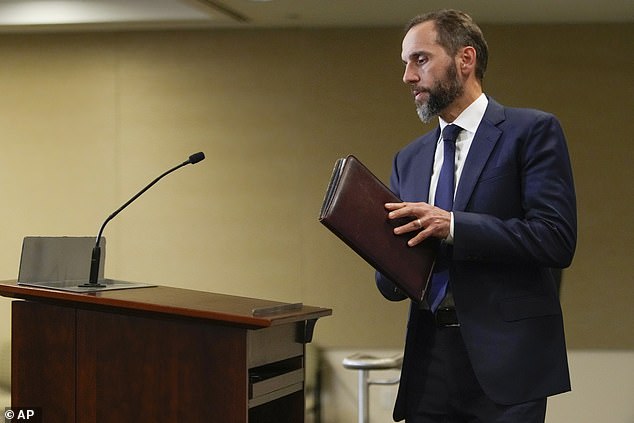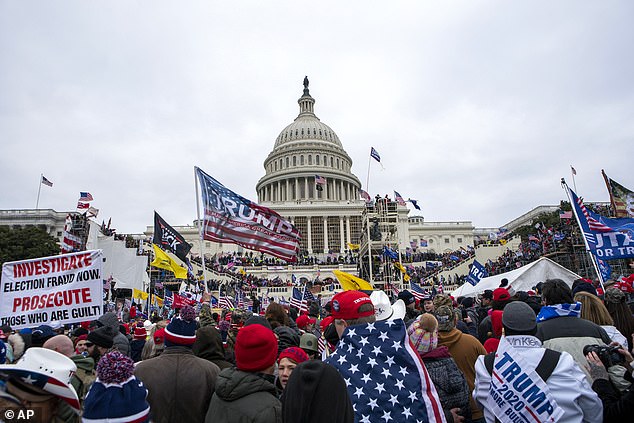Donald Trump does NOT have absolute immunity from federal charges of trying to overturn 2020 election, judge rules in blow to former president
In a unique ruling, a US federal judge has ruled that former President Donald Trump does not have immunity from criminal prosecution for actions he took while in office.
Friday night's ruling came as a blow to Trump, blocking his attempt to dismiss the indictment filed in Washington, DC, by special counsel Jack Smith, who accused him of unlawfully trying to overturn his 2020 election loss.
U.S. District Judge Tanya Chutkan, who is overseeing the case, found no legal basis to conclude that presidents cannot face criminal charges once they are no longer in office.
She wrote in the ruling: “Whatever immunity a sitting president may enjoy, the United States has only one president at a time, and that position does not confer a lifetime 'get out of jail' pass.”
In addition, a three-judge federal appeals panel on Friday also rejected Trump's sweeping claims that presidential immunity shields him from liability in lawsuits accusing him of inciting the mob that attacked the U.S. Capitol on Jan. 6, 2021.
A US federal judge has ruled that former President Donald Trump does not have immunity from criminal prosecution for actions he took while in office

U.S. District Judge Tanya Chutkan (above) found no legal basis for concluding that presidents cannot face criminal charges once they are no longer in office
In the criminal case, Judge Chutkan condemned Trump's legal arguments in a 48-page memorandum, noting that he “is accused of attempting to take the reins of government.”
Because Trump is the first current or former U.S. president to face criminal charges, Chutkan's ruling is the first from a U.S. court affirming that presidents can be charged with crimes just like any other citizen.
The judge also rejected Trump's central argument that the allegations violate his right to free speech under the First Amendment of the U.S. Constitution.
Trump's lawyers had argued that Smith's case “attempts to criminalize core political speech and political advocacy.”
Chutkan's memo flatly rejected this argument, noting that “many long-standing” criminal laws criminalize speech used in the commission of crimes, including “fraud, bribery, perjury, extortion, threats, incitement, incitement, and blackmail.”
Chutkan's ruling in DC puts Trump one step closer to facing a jury on charges that he planned to interfere with the counting of electoral votes and obstruct Congress' approval of Joe Biden's victory.
Trump has pleaded not guilty and accused prosecutors of trying to damage his campaign.
The trial is expected to begin in March, but Trump could immediately appeal the ruling, which could potentially delay the process while an appeals court and possibly the Supreme Court review the issue.
Trump has additional pending legal requests to dismiss the case based on other claims, including that his conduct, as alleged by prosecutors, does not fit the charges they filed.
In addition to the case being prosecuted by Smith, Trump also faces criminal charges in Georgia related to his actions to overturn his 2020 defeat and two other charges. He has also pleaded not guilty in those cases.

Special Counsel Jack Smith (above) accused Trump of unlawfully trying to overturn his 2020 election loss

In a separate ruling, the Court of Appeals for the DC Circuit Court ruled that the lawsuits Trump faces over the January 6, 2021, riot at the US Capitol can proceed.
The U.S. Department of Justice has long had an internal policy of not indicting a sitting president, but prosecutors say such restrictions no longer exist once a president leaves the White House.
Trump's lawyers had made a sweeping claim that he is “absolutely immune” from charges arising from official actions he took as president, arguing that political opponents could use the threat of criminal prosecution to interfere with responsibilities of a president.
His defense team argued that the immunity that sitting U.S. presidents have from civil lawsuits should extend to criminal prosecution.
Prosecutors argued that Trump's argument would essentially place the US president above the law, violating basic principles of the Constitution.
The DC appeals court also rejects immunity in civil cases
In a separate ruling, the Court of Appeals for the D.C. Circuit court ruled that lawsuits Trump faces over the riot at the U.S. Capitol can move forward.
But the three-judge panel said the 2024 Republican presidential nominee may continue to fight, as the cases progress, to try to prove his actions were taken in his official capacity as president.
Trump has said he cannot be charged over the riot that left dozens of police officers injured. He argued that his words at a rally before the storming of the Capitol related to “matters of public interest” and fell within the scope of absolute presidential immunity.
In the criminal case, Smith's team has indicated that it will argue at trial that Trump is responsible for the violence at the Capitol and will point to Trump's continued embrace of the Jan. 6 rioters on the campaign trail to argue that he intended the chaos that day.
Friday's statements underscore the challenges Trump faces as he tries to convince courts, and possibly juries, that the actions he took in the lead-up to the riot were part of his official duties as president.
Although courts have granted presidents broad immunity for their official actions, the justices have made clear that that protection does not extend to just any act or speech by a president.
For example, a president running for a second term is not performing the official duties of the presidency if he speaks at a rally funded by his re-election campaign or attends a private fundraiser, the appeals court said.
“He is acting as an office seeker, not an office holder – just like the persons acting against him when they take the very same actions in their competing campaigns to win the very same office,” Justice Sri Srinivasan wrote for the court.
But the court said its decision is not necessarily the final word on the issue of presidential immunity, leaving the door open for Trump to continue fighting the issue.
And it took some effort to note that it was not asked to assess whether Trump was responsible for the riot or whether he should be held accountable in court.
It also said Trump could still try to argue that his actions were protected by the First Amendment — a claim he has also made in his ongoing criminal case — or are covered by other privileges.
“When these matters come before the court, he must be given the opportunity to develop his own facts on the immunity issue if he is to demonstrate that he took the actions alleged in the complaints in his official capacity as president and not in his capacity as president. unofficial capacity as a candidate,” the court said.
